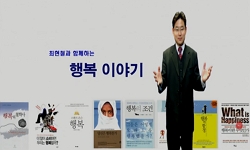This study aims to reveal the relationship between commuting and subjective well-being, while considering other life domains that can be influenced by commuting time. To do so, theoretical perspectives that accounts for commuting and subjective well-b...
http://chineseinput.net/에서 pinyin(병음)방식으로 중국어를 변환할 수 있습니다.
변환된 중국어를 복사하여 사용하시면 됩니다.
- 中文 을 입력하시려면 zhongwen을 입력하시고 space를누르시면됩니다.
- 北京 을 입력하시려면 beijing을 입력하시고 space를 누르시면 됩니다.

경기도민의 통근시간과 삶의 질- 생활시간 및 소득과의 관계를 중심으로 - = The Quality of Life and Commuting: Considering Time - Use and Income of Kyunggi Resident
한글로보기https://www.riss.kr/link?id=A104986376
- 저자
- 발행기관
- 학술지명
- 권호사항
-
발행연도
2017
-
작성언어
Korean
-
주제어
경기도 ; 삶의 만족도 ; 행복 ; 통근시간 ; Kyunggi-do ; life satisfaction ; happiness ; commuting time
-
등재정보
KCI등재
-
자료형태
학술저널
-
수록면
25-49(25쪽)
-
KCI 피인용횟수
4
- 제공처
-
0
상세조회 -
0
다운로드
부가정보
다국어 초록 (Multilingual Abstract)
This study aims to reveal the relationship between commuting and subjective well-being, while considering other life domains that can be influenced by commuting time. To do so, theoretical perspectives that accounts for commuting and subjective well-being. Two main perspectives – resource drain and compensation – are discussed. Then, we empirically investigate the interrelation of various factors that influences subjective well-being using structural equation model. A dataset from the 2016 Kyunggi-do quality of life survey data is employed.
Our result shows show that an increase in commute time does not significantly affect other life domains, such as leisure time and sleeping. In addition, long commuting does not decrease subjective well-being of respondents. It seems that increasing income compensates the negative effect of long-commuting, and people who work to and from Seoul earn more money. Compensation theory works better in understanding subjective well-being of Kyunggi residents.
This result has some policy implications. First, jobs offering high income are important for enhancing life satisfaction and happiness. Policy efforts for locating more decent jobs in Kyunggi-do are necessary. Second, we need to concern the ways to increase subjective well-being of people who work in Kyunggi-do.
국문 초록 (Abstract)
본 연구는 경기도민의 삶의 질과 관련하여 통근시간과 삶의 여러 영역들의 관계를 한정된 자원으로 인한 경쟁적인관계로 보는 자원유출이론과 다른 영역에서 가치를 획득하는 상쇄관계로 ...
본 연구는 경기도민의 삶의 질과 관련하여 통근시간과 삶의 여러 영역들의 관계를 한정된 자원으로 인한 경쟁적인관계로 보는 자원유출이론과 다른 영역에서 가치를 획득하는 상쇄관계로 보는 보상이론을 통해서 검증하고자 하였다.
분석자료는 ‘경기도민 삶의 질 조사’의 원자료이며 분석방법은 구조방정식을 활용하였다. 통근시간과 삶의 영역들과의관련성을 확인하기 위하여 생활시간 및 소득 관련 변수를 매개변수를 투입하였다.
분석결과 기존 연구들과 달리 장거리 통근에 의한 삶의 질에 대한 부적인 영향이 나타나지 않았으며, 통근시간이 일상생활 변수들과 보상적인 관계를 형성하고 있음이 나타났다. 장거리 통근자의 경우에 길어진 통근시간을 상대적으로짧은 근무시간과 높은 소득으로 보상을 받아서 통근시간이 갖고 있는 부정적인 영향을 상쇄시키고 있는 것이다. 이와관련하여 추가적인 연구방향과 정책적 제언을 제시하였다.
참고문헌 (Reference)
1 이명우, "여가 활동이 국민 행복에 미치는 영향: 여가만족의 매개효과를 중심으로" 한국문화관광연구원 30 (30): 264-287, 2016
2 전명진, "수도권 통근자의 주거비용과 통근비용의 상쇄관계에 대한 실증분석" 한국지역개발학회 28 (28): 25-40, 2016
3 진장익, "서울시 직장인들의 통근시간과 행복" 대한국토·도시계획학회 52 (52): 99-116, 2017
4 한국교통연구원, "국민 통근통행 부담격차 완화 정책방안"
5 Helliwell, J. F., "World Happiness Report 2016 Update" Sustainable Development Solutions Network: A Global Initiative for the United Nations 2016
6 Ernst Kossek, E., "Work–family conflict, policies, and the job–life satisfaction relationship: A review and directions for organizational behavior–human resources research" 83 (83): 139-149, 1998
7 Erdogan, B., "Whistle while you work: A review of the life satisfaction literature" 38 (38): 1038-1083, 2012
8 Helliwell. J. F., "The social context of well-being" 359 : 1435-1446, 2004
9 Pavot, W., "The satisfaction with life scale and the emerging construct of life satisfaction" 3 (3): 137-152, 2008
10 Heller, D., "The role of person versus situation in life satisfaction: A critical examination" 130 (130): 574-600, 2004
1 이명우, "여가 활동이 국민 행복에 미치는 영향: 여가만족의 매개효과를 중심으로" 한국문화관광연구원 30 (30): 264-287, 2016
2 전명진, "수도권 통근자의 주거비용과 통근비용의 상쇄관계에 대한 실증분석" 한국지역개발학회 28 (28): 25-40, 2016
3 진장익, "서울시 직장인들의 통근시간과 행복" 대한국토·도시계획학회 52 (52): 99-116, 2017
4 한국교통연구원, "국민 통근통행 부담격차 완화 정책방안"
5 Helliwell, J. F., "World Happiness Report 2016 Update" Sustainable Development Solutions Network: A Global Initiative for the United Nations 2016
6 Ernst Kossek, E., "Work–family conflict, policies, and the job–life satisfaction relationship: A review and directions for organizational behavior–human resources research" 83 (83): 139-149, 1998
7 Erdogan, B., "Whistle while you work: A review of the life satisfaction literature" 38 (38): 1038-1083, 2012
8 Helliwell. J. F., "The social context of well-being" 359 : 1435-1446, 2004
9 Pavot, W., "The satisfaction with life scale and the emerging construct of life satisfaction" 3 (3): 137-152, 2008
10 Heller, D., "The role of person versus situation in life satisfaction: A critical examination" 130 (130): 574-600, 2004
11 Iwasaki, Y., "The impact of leisure coping beliefs and strategies on adaptive outcomes" 22 (22): 93-108, 2003
12 Grandey, A. A., "The conservation of resources model applied to work–family conflict and strain" 54 (54): 350-370, 1999
13 WHOQOL Group, "The World Health Organization quality of life assessment (WHOQOL): Position paper from the World Health Organization" 41 (41): 1403-1409, 1995
14 Vittersø, J., "The Conceptual and relational structure of subjective well-being, neuroticism, and extraversion: Once again, neuroticism is the important predictor of happiness" 57 (57): 89-118, 2002
15 Diener, Ed, "Subjective well-being: Three decades of progress" 125 (125): 276-302, 1999
16 Stutzer, A., "Stress that doesn't pay: The commuting paradox" 110 (110): 339-366, 2008
17 OECD, "Society at a Glance 2016: OECD Social Indicators" OECD Publishing 2016
18 Hublin, C., "Sleep and mortality: a population-based 22-year follow-up study" 30 (30): 1245-1253, 2007
19 Tavits, M., "Representation, corruption, and subjective well-being" 41 (41): 1607-1630, 2008
20 Radcliff, B., "Politics, markets, and life satisfaction: The political economy of human happiness" 95 (95): 939-952, 2001
21 Lu, L., "Personality, leisure experiences and happiness" 6 (6): 325-342, 2005
22 Keyes, C. L., "Optimizing well-being: the empirical encounter of two traditions" 82 (82): 1007-1022, 2002
23 Easterlin, R. A., "Nations and Households in Economic Growth: Essays in Honor of Moses Abramovitz" Academic Press, Inc 89-125, 1974
24 Edwards, J. R., "Mechanisms linking work and family: Clarifying the relationship between work and family constructs" 25 (25): 178-199, 2000
25 Porter, L. W., "Managerial Attitudes and Performance" R.D. Irwin 1968
26 Paunio, T., "Longitudinal study on poor sleep and life dissatisfaction in a nationwide cohort of twins" 169 (169): 206-213, 2008
27 Alonso, W., "Location and Land Use" Harvard University Press 1964
28 Roberts, J., "It's driving her mad: Gender differences in the effects of commuting on psychological health" 30 (30): 1064-1076, 2011
29 OECD, "How’s life? 2013: Measuring well-being" OECD Publishing 2013
30 Helliwell. J. F., "How's life? combining individual and national variables to explain subjective well-being" 20 (20): 331-360, 2003
31 OECD, "Hours worked (indicator)"
32 Hilbrecht, M., "Highway to health? Commute time and well-being among Canadian adults" 56 (56): 151-163, 2014
33 Tsou, M. W., "Happiness and domain satisfaction in Taiwan" 2 (2): 269-288, 2001
34 Diener, Ed, "Factors predicting the subjective well-being of nations" 69 (69): 851-864, 1995
35 DeLeire, T., "Does consumption buy happiness? Evidence from the United States" 57 (57): 163-176, 2010
36 Nie, P., "Commute time and subjective well-being in urban China" 1-17, 2016
37 Besser, L. M., "Commute time and social capital in the US" 34 (34): 207-211, 2008
38 Hayes, N., "Big 5 correlates of three measures of subjective well-being" 34 (34): 723-727, 2003
39 Humphreys, D. K., "Associations between active commuting and physical and mental wellbeing" 57 (57): 135-139, 2013
40 Kahneman, D., "A survey method for characterizing daily life experience: The day reconstruction method" 306 (306): 1776-1780, 2004
41 Lyons, G., "A human perspective on the daily commute: costs, benefits and trade offs" 28 (28): 181-198, 2008
동일학술지(권/호) 다른 논문
-
사회복지전공대학생의 전공만족도와 취업스트레스와의 관계에서 진로결정자기효능감의 매개효과검증
- 재단법인 경기연구원
- 이미선
- 2017
- KCI등재
-
사회적자본이 지역주민 삶의 만족에 미치는 영향분석- 경기도 거주 지역주민을 중심으로 -
- 재단법인 경기연구원
- 김창일
- 2017
- KCI등재
-
행복과 통근역설: 통근시간의 증가가 경기도민의 행복지수를 감소시키는가?
- 재단법인 경기연구원
- 진은애
- 2017
- KCI등재
-
사회통합을 매개로 경기도민의 주거안정성 및교통편의가 삶의 질에 미치는 영향- 1인 가구여부의 차이를 중심으로 -
- 재단법인 경기연구원
- 김소은
- 2017
- KCI등재
분석정보
인용정보 인용지수 설명보기
학술지 이력
| 연월일 | 이력구분 | 이력상세 | 등재구분 |
|---|---|---|---|
| 2026 | 평가예정 | 재인증평가 신청대상 (재인증) | |
| 2020-01-01 | 평가 | 등재학술지 유지 (재인증) |  |
| 2017-01-01 | 평가 | 등재학술지 유지 (계속평가) |  |
| 2015-05-07 | 학회명변경 | 한글명 : 경기개발연구원 -> 경기연구원 |  |
| 2013-01-01 | 평가 | 등재학술지 선정 (등재유지) |  |
| 2012-01-01 | 평가 | 등재후보 1차 PASS (등재후보1차) |  |
| 2011-01-01 | 평가 | 등재후보학술지 유지 (등재후보1차) |  |
| 2009-01-01 | 평가 | 등재후보학술지 선정 (신규평가) |  |
학술지 인용정보
| 기준연도 | WOS-KCI 통합IF(2년) | KCIF(2년) | KCIF(3년) |
|---|---|---|---|
| 2016 | 0.83 | 0.83 | 1.04 |
| KCIF(4년) | KCIF(5년) | 중심성지수(3년) | 즉시성지수 |
| 0.87 | 0.82 | 1.233 | 0.25 |





 DBpia
DBpia






